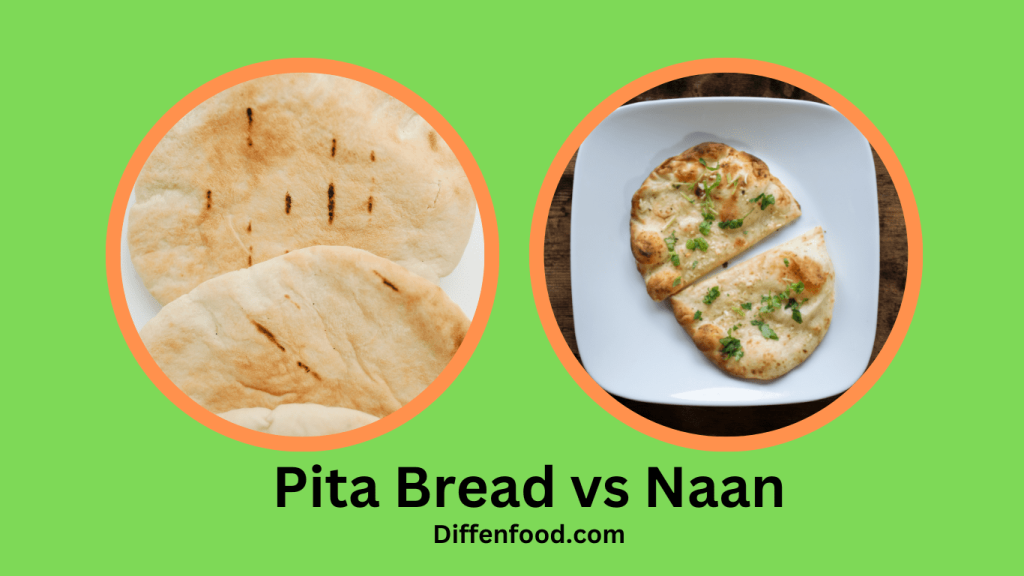
Egg Noodle vs Rice Noodle – two widely consumed types of noodles in Asian cuisine. Each boasting a unique taste, texture, and appearance. This article aims to highlight the differences between Egg Noodle and Rice Noodle. Providing you with the information necessary to choose the best option for your next dish.
Details: Egg Noodle Vs Rice Noodle
Egg Noodles

Egg noodles are a versatile type of pasta that are made with eggs and wheat flour. They have a mild and slightly sweet taste, and are a good source of carbohydrates, protein, iron, and B vitamins. They can be prepared in a variety of ways and used in a range of dishes.
Preparation Technique
To make egg noodles, one typically mixes wheat flour and eggs into a dough, rolls it out and cuts it into the desired shape. The dough is kneaded for several minutes to develop gluten, which provides the noodles with a chewy texture. One then boils the noodles in salted water until they reach a tender and fully cooked texture.
Appearance
Egg noodles are typically pale yellow in color, due to the addition of eggs to the dough. They come in a variety of shapes and sizes, from thin and delicate angel hair pasta to thicker and chewier fettuccine. Some egg noodles are curly, while others are straight.
Taste
Egg noodles have a mild and slightly sweet taste, with a slightly chewy texture. They are not as strong in flavor as some other types of pasta, but they are a great vehicle for sauces and other flavorful ingredients.
Nutritional Value
Egg noodles are a good source of carbohydrates, providing energy for the body. They also contain protein, which is important for building and repairing tissues in the body. Egg noodles are also a source of iron and B vitamins, which are important for maintaining good health.
Rice Noodle

Preparation Technique
Typically, one makes rice noodles by mixing rice flour and water into a dough, which they then extrude through a machine and cut into noodles of varying sizes.
Appearance
Rice noodles are thin and translucent, with a smooth, slippery texture. They come in various shapes and sizes, ranging from thin, vermicelli-like strands to wider, flatter noodles.
Taste
Rice noodles have a neutral flavor that is slightly sweet and nutty, which makes them a versatile ingredient in a wide range of dishes. They have a light and delicate texture, which allows them to absorb flavors and sauces well.
Nutritional Value
Rice noodles are low in fat and contain no cholesterol, making them a healthy alternative to wheat-based noodles. They are also gluten-free and a good source of carbohydrates. Rice noodles are low in protein and fiber, so it’s important to pair them with other protein and fiber-rich ingredients to make a balanced meal.
Can egg noodles be substituted for rice noodles in recipes?
Healthy Benefit: Egg Noodle Vs Rice Noodle

In terms of nutritional value, rice noodles are considered to be healthier than egg noodles. One cup of cooked rice noodles made with white rice has about 193 calories, 0.4 grams of fat, 43.8 grams of carbohydrates, 1.8 grams of fiber, and 1.6 grams of protein. On the other hand, one cup of cooked egg noodles has about 221 calories, 3.9 grams of fat, 40.4 grams of carbohydrates, 1.7 grams of fiber, and 7.3 grams of protein.
Rice noodles are lower in calories, fat, and protein than egg noodles. This makes them a good choice for those who are watching their calorie intake or trying to lose weight. Additionally, rice noodles have a higher carbohydrate content than egg noodles, which can provide a quick source of energy for the body.
Another benefit of rice noodles is that they are gluten-free, making them a good option for those who have celiac disease or gluten intolerance. Egg noodles, on the other hand, are typically made from wheat flour and contain gluten.
One thing to keep in mind when choosing between rice noodles and egg noodles is that the preparation method can also affect their nutritional value. For example, fried rice noodles or egg noodles can be high in fat and calories, while boiled or steamed noodles are a healthier option.
Overall, rice noodles are a better choice than egg noodles when it comes to healthy eating. They are lower in calories, fat, and protein, and have a higher carbohydrate content. Additionally, they are gluten-free, making them a good option for those with dietary restrictions. However, as with any food, it is important to consume rice noodles in moderation and choose healthier preparation methods to maximize their nutritional value.
Can egg noodles be substituted for rice noodles in recipes?
Cooking Times: Egg Noodle Vs Rice Noodle
Cooking egg noodles is an easy and quick task, but it requires a bit of patience. To start, you will need to bring a large pot of water to a boil, which takes about 10 minutes. Once the water is boiling, add the egg noodles and cook them for about 5 more minutes. It’s essential not to overcook the noodles, as they can become mushy and lose their texture. If you’re unsure if they’re done, taste one noodle to check for doneness. Once they’re ready, drain the water and rinse the noodles with cold water to stop them from cooking further.
Rice noodles incredibly easy to cook, requiring only a few simple steps. To cook rice noodles, simply soak them in warm water for 10-15 minutes until they are soft. It’s important to use warm water, as cold water won’t soften the noodles and hot water will overcook them. Once the noodles are soft, drain them and rinse them under cold water to stop the cooking process.
Storage Way: Egg Noodles Vs Rice Noodles

When it comes to storing egg noodles and rice noodles, there are some key differences to consider. While both types of noodles should be kept in an airtight container in a cool, dry place, there are some variations in terms of storage duration. Egg noodles typically have a longer shelf life than rice noodles, with some varieties lasting up to two years when stored properly. Rice noodles, on the other hand, tend to have a shorter storage life of around six months to a year. It’s important to check the packaging for specific storage instructions and to use noodles before their expiration date to ensure freshness and quality.
Conclusion
The choice between egg noodles and rice noodles ultimately depends on personal preference and the type of dish being prepared. Experimenting with both types of noodles can lead to discovering new and delicious flavors and textures in your cooking.





